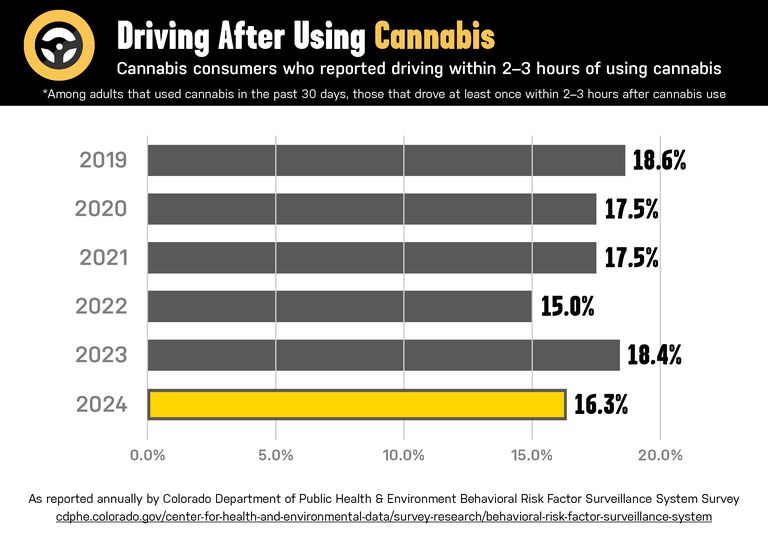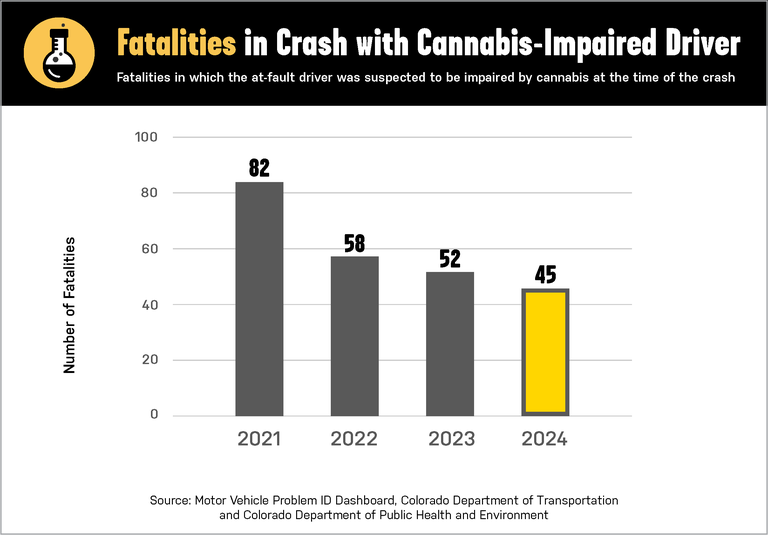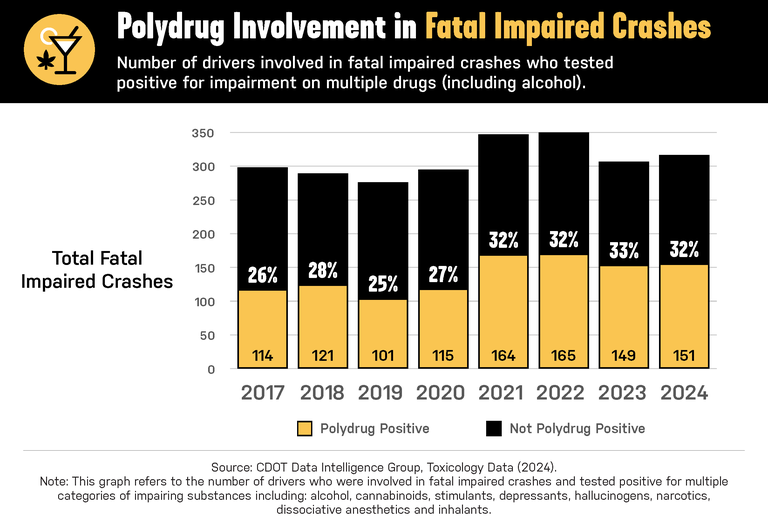Cannabis and Driving: Data and Research
Driving high is dangerous, and we want cannabis users and the general public to have the facts on the impacts of cannabis-impaired driving. There is a growing body of state data and academic research that shows cannabis does have physiological effects that impair driving – and that people are being injured and killed as a result.
State and National Data Resources on Cannabis-Impaired Driving



Links to state and federal impaired driving data resources
- ORS: Dashboard-Driving Under the Influence
- CDPHE dashboard
- CDPHE Behavioral Risk Factor Surveillance Survey
- National Highway Traffic Safety Administration Drug Impaired Driving Page
- AAA Foundation for Traffic Safety Risky Driving Behaviors Survey
Links to Academic Research on Cannabis and Driving Impairment
There are many misconceptions about marijuana use, including rumors that it can’t impair your ability to drive or that it can actually make you a safer driver. Several scientific studies indicate that this is false. Research shows that marijuana impairs motor skills, reaction time, lane tracking and cognitive functions.
- UCSD Driving Performance and Cannabis Users’ Perception of Safety Report
- NHTSA Drug and Alcohol Crash Risk Study
- The combined effects of alcohol and cannabis on driving: Impact on crash risk (Dubois, et. al., 2015)
- Columbia University's Mallman School Of Public Health study on cannabis and alcohol-impaired driving
